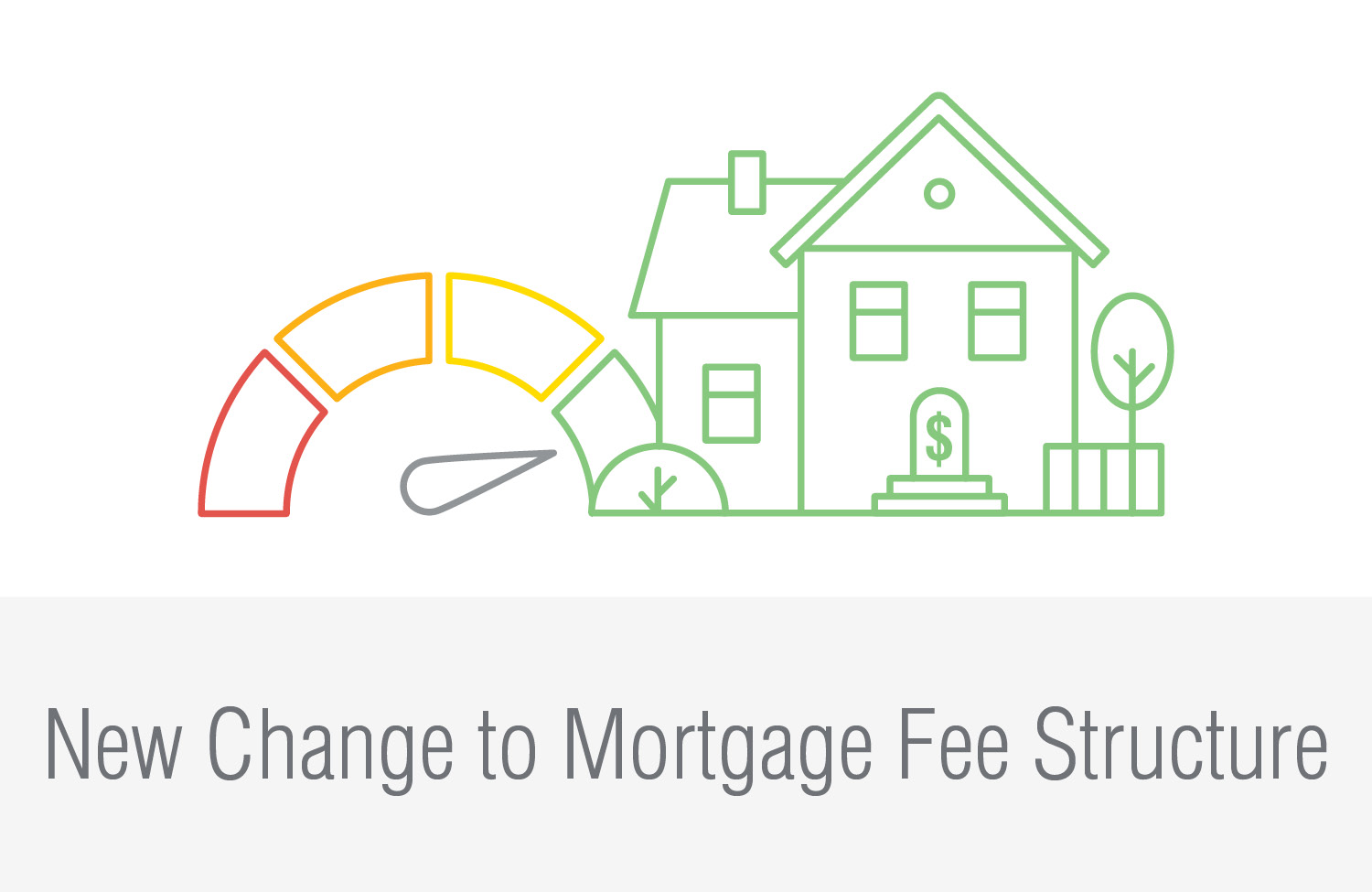
New Change to Mortgage Fee Structure
The Loan Level Price Adjustment (LLPA) fee structure has been updated recently and is now in effect for all loans purchases on or after May 1, 2023. You may have heard about it in the news.
What is a Loan Level Price Adjustment?
According to the FDIC, LLPAs are "Risk-based pricing adjustments that vary based on credit score, loan-to value ratio, type of product, and various other factors, charged at the time of origination. Fannie Mae and Freddie Mac charge both annual guarantee fees and upfront LLPAs. Most lenders convert LLPAs into the interest rate on the mortgage, which the borrower pays over time."
In a nutshell, LLPAs are fees charged by Fannie Mae and Freddie Mac, the entities that guarantee a vast majority of new conventional mortgages. These fees are mainly based on a homebuyer's credit score and the size of their down payment. They are often rolled into closing costs.
Since their founding in 2008, LLPAs have been the government's way of increasing prices for "riskier" borrowers without penalizing safer ones.
What is changing when it comes to LLPAs?
It is important to note that these fees will not impact people who already have a mortgage. They will only affect those securing a loan backed by Fannie or Freddie (conventional loan), rather than those obtaining other types of loans, such as an FHA, VA, or USDA loan.
The new fee structure reduces LLPAs for borrowers with low credit scores and lower down payments while slightly increasing the existing fee for homebuyers with good credit.
Borrowers with good credit scores will still receive more favorable pricing than those with lower credit scores, but the gap between what was previously paid will now be smaller.
Additional changes
There were also going to be additional changes to the loan pricing based on a borrower's debt-to-income ratio (DTI.) Starting in August, a borrower's debt-to-income ratio would have also affected their pricing. If a borrower's DTI was over 40%, and they were borrowing more than 60% of the home's value, they would have paid more for the loan. However, as of May 10, 2023, this fee was rescinded after many lenders argued that they would not be able to determine a borrower’s actual income before rates had to be locked.
What is a Loan Level Price Adjustment?
According to the FDIC, LLPAs are "Risk-based pricing adjustments that vary based on credit score, loan-to value ratio, type of product, and various other factors, charged at the time of origination. Fannie Mae and Freddie Mac charge both annual guarantee fees and upfront LLPAs. Most lenders convert LLPAs into the interest rate on the mortgage, which the borrower pays over time."
In a nutshell, LLPAs are fees charged by Fannie Mae and Freddie Mac, the entities that guarantee a vast majority of new conventional mortgages. These fees are mainly based on a homebuyer's credit score and the size of their down payment. They are often rolled into closing costs.
Since their founding in 2008, LLPAs have been the government's way of increasing prices for "riskier" borrowers without penalizing safer ones.
What is changing when it comes to LLPAs?
It is important to note that these fees will not impact people who already have a mortgage. They will only affect those securing a loan backed by Fannie or Freddie (conventional loan), rather than those obtaining other types of loans, such as an FHA, VA, or USDA loan.
The new fee structure reduces LLPAs for borrowers with low credit scores and lower down payments while slightly increasing the existing fee for homebuyers with good credit.
Borrowers with good credit scores will still receive more favorable pricing than those with lower credit scores, but the gap between what was previously paid will now be smaller.
Additional changes
There were also going to be additional changes to the loan pricing based on a borrower's debt-to-income ratio (DTI.) Starting in August, a borrower's debt-to-income ratio would have also affected their pricing. If a borrower's DTI was over 40%, and they were borrowing more than 60% of the home's value, they would have paid more for the loan. However, as of May 10, 2023, this fee was rescinded after many lenders argued that they would not be able to determine a borrower’s actual income before rates had to be locked.
